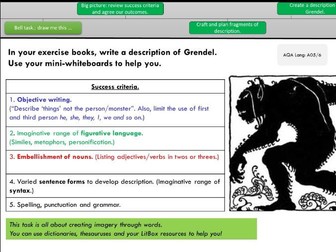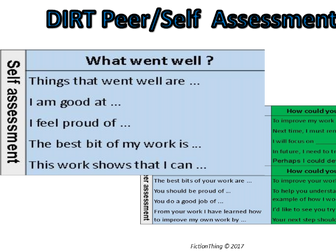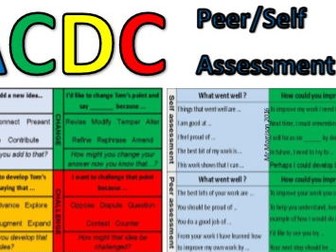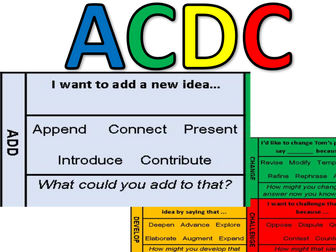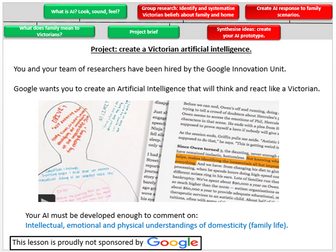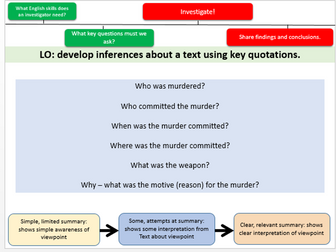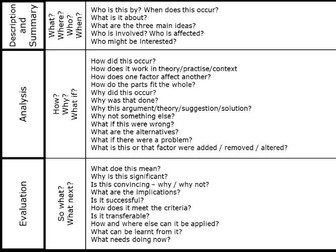
FREE LESSON creative writing AQA Language Paper 1 Question 5
FREE lesson focusing on creative writing (AQA Language Paper 1 and Paper 2 Question 5).
The lesson uses the monster Grendel from Beowulf as its stimulus, but no real prior knowledge is needed, as student use a word bank in the starter/bell work to make inferences about the character.
An activity based on 'what time is it Mr Wolf' is used to help students generate ideas through collaborative planning. Students/groups with the best ideas on their mini-whiteboards move forward. Real discussion can be had here if you pause to compare and contrast student responses. I collected responses on my whiteboard at the front, which students then magpied from during planning to supplement and develop their own ideas - screen shot is in the PowerPoint. You can COLOUR CODE student responses to differentiate and signpost levels.
Clear success criteria is included.
Feel free to use, adapt or magpie.
The lesson contains:
* A starter activity using inference skills (AQA Lit A01/2);
* A Big Picture review – connecting learning to success criteria;
* A whole class individual/paired/group planning activity based on the game ‘What Time is it Mr Wolf’ using zoomed in images of Grendel to evoke student curiosity and fire their imagination.
* Individual planning time with structured activities to develop exam technique.
* Individual silent create and apply time with clear success criteria.
A complete resource pack for this lesson can be found here: https://www.tes.com/teaching-resource/aqa-language-paper-1-question-5-creative-writing-planning-wagoll-and-dirt-pack-grendel-11794267
